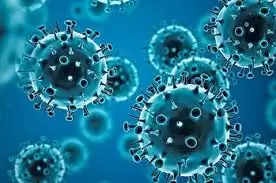
COVID-19 Side Effects: Even after recovering from COVID-19 infection, the number of deaths due to it does not seem to be decreasing. Recently, the truth of heart attack and stroke due to vaccine Covishield came to light. Now a study has revealed the reason behind lung damage and death in COVID patients.
Its side effects may still be present in patients who have recovered from Covid-19 infection. Due to this, cases of deterioration in health, heart attack, stroke and lung failure and deaths due to it are continuously increasing.
In a study published in the journal Nature Communications The reason behind lung damage in Covid patients has been revealed. According to this, the lung cells of patients infected with Covid-19 start dying rapidly. Due to this Inflammation of the lungs And life-threatening conditions such as acute respiratory disorders can occur. Researchers have also suggested that by inhibiting ferroptosis, new ways can be developed to treat lung diseases caused by COVID-19.
What is Ferroptosis?
Cell death is a natural process in which cells stop working. During cell death, the molecules inside the cell break down. This process occurs naturally in humans with illness or aging. But ferroptosis is an abnormal form of cell death in which the outer fat layers of cells break down and they begin to die and the lungs become weak.
Sample taken from dead body
Researchers at Columbia University in the US This study has been done. They analyzed the tissues of patients who lost their lives due to respiratory failure caused by COVID-19. Apart from this, the tissues of hamsters were also analyzed in the study.
Relation of COVID-19 and Ferroptosis
The results of the study show that the amount of ferroptosis in the lungs of patients severely affected by COVID-19 is much higher than normal. This is the reason why their lungs suffer so much damage.
A cure for COVID-19 may be found
Researchers hope that the development of drugs that inhibit ferroptosis could greatly help in the treatment of COVID-19. This study is still in its early stages and more research is needed on drugs that target ferroptosis. However, this study shows a new direction for the treatment of COVID-19.
 look news india
look news india
